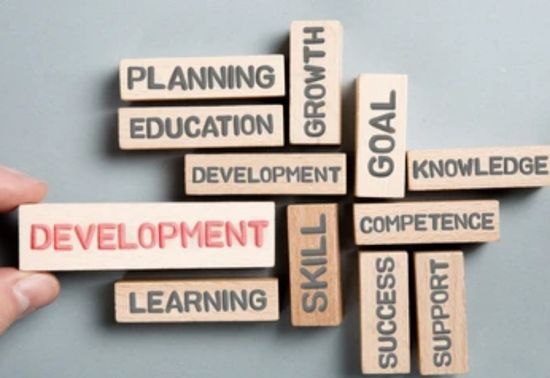Exploring the Benefits of Personal Budgeting
In today's fast-paced world, managing personal finances has become increasingly important. One effective tool for managing finances is personal budgeting. In this article, we will explore the benefits of personal budgeting and provide practical tips to help you create and maintain a budget that works for you.
What is Personal Budgeting?
Personal budgeting is the process of creating a detailed plan for managing your income and expenses. It involves tracking your spending, setting financial goals, and allocating your income to different categories such as housing, transportation, groceries, entertainment, and savings. A personal budget serves as a roadmap to guide your financial decisions and ensure that you are using your money wisely.
Why is Personal Budgeting Important?
Personal budgeting is important for several reasons. Firstly, it helps you gain a clear understanding of your financial situation. By tracking your income and expenses, you become more aware of where your money is going and can identify areas where you may be overspending. This awareness allows you to make informed decisions and take control of your finances.
Secondly, personal budgeting helps you achieve your financial goals. Whether you want to save for a down payment on a house, pay off your student loans, or build an emergency fund, having a budget allows you to allocate funds towards these goals. It provides a structured approach to achieving your financial aspirations.
How to Create a Personal Budget
Creating a personal budget involves several steps. Let's walk through the process:
Assess Your Income and Expenses
The first step is to determine your monthly income and expenses. Make a list of all your income sources, including your salary, freelance work, rental income, or any other sources of money coming in. Next, track your expenses for a month by reviewing bank statements, receipts, and bills. Categorize your expenses into different categories such as housing, transportation, groceries, utilities, entertainment, and debt payments.
Set Financial Goals
Once you have a clear picture of your income and expenses, set financial goals. These goals can be short-term, such as paying off credit card debt, or long-term, such as saving for retirement. Having specific goals in mind will help you stay motivated and focused on your budgeting journey.
Track Your Spending
Consistently tracking your spending is crucial for successful budgeting. Use budgeting apps, spreadsheets, or simply a pen and paper to record your expenses. Review your spending regularly to ensure you are staying within your allocated budget for each category.
Allocate Your Income
Allocate your income to different categories based on your priorities and financial goals. Start with essential expenses like housing, utilities, and groceries. Then, allocate funds for debt payments, savings, and discretionary spending. Be mindful of not overspending in one category at the expense of another.
Review and Adjust
Regularly review your budget and make necessary adjustments. Life circumstances and financial goals may change over time, so it's important to adapt your budget accordingly. Stay flexible and be willing to make changes as needed.
The Benefits of Personal Budgeting
Personal budgeting offers numerous benefits that can positively impact your financial well-being and overall quality of life. Let's explore some of these benefits:
Financial Awareness and Control
By creating a personal budget, you gain a deep understanding of your financial situation. You become aware of where your money is going and can identify areas where you may need to cut back. This awareness gives you greater control over your finances and helps you make informed decisions.
Goal Achievement
A personal budget serves as a roadmap to help you achieve your financial goals. By allocating funds towards specific goals, such as saving for a vacation or paying off debt, you are more likely to make progress and achieve those goals. Budgeting keeps you focused and motivated.
Debt Reduction
Personal budgeting can be a powerful tool for reducing debt. By allocating extra funds towards debt payments, you can accelerate the repayment process and save money on interest. A budget helps you prioritize debt reduction and makes it easier to see progress over time.
Savings and Emergency Funds
Budgeting encourages regular savings and the creation of emergency funds. By allocating a portion of your income to savings, you build a financial cushion for unexpected expenses or future goals. Having savings provides peace of mind and reduces financial stress.
Stress Reduction
Financial stress can take a toll on your mental and physical well-being. Personal budgeting helps alleviate this stress by providing a sense of control and structure. When you have a plan in place and are actively working towards your financial goals, you can experience a greater sense of peace and security.
Improved Decision-Making
When you have a budget, you can make more informed decisions about your spending. You can evaluate whether a purchase aligns with your financial goals and priorities. Budgeting helps you differentiate between wants and needs, enabling you to make smarter choices with your money.
Better Financial Relationships
Budgeting can positively impact your relationships, especially if you share finances with a partner or family members. Open communication about money and shared financial goals can strengthen relationships and promote a healthier financial dynamic.
Future Planning and Retirement
Personal budgeting extends beyond immediate financial goals. It also helps you plan for the future, including retirement. By consistently saving and investing, you can build a nest egg that will provide financial security in your golden years.
Financial Freedom and Independence
One of the ultimate benefits of personal budgeting is achieving financial freedom and independence. When you have control over your money and are actively working towards your goals, you become less reliant on others for financial support. This independence brings a sense of empowerment and opens doors to new opportunities.
Improved Quality of Life
Overall, personal budgeting contributes to an improved quality of life. It reduces financial stress, allows you to pursue your goals, and provides a solid foundation for financial well-being. With a budget in place, you can enjoy life's pleasures while also securing your financial future.
Tips for Successful Personal Budgeting
To make the most of your personal budget, consider implementing the following tips:
Track Your Expenses
Consistently tracking your expenses is essential for budgeting success. Use technology, such as budgeting apps, to automate this process and gain a comprehensive view of your spending habits.
Prioritize Your Spending
Allocate your income based on your priorities. Ensure that essential expenses, debt payments, and savings come first before discretionary spending. This approach helps you stay focused on your financial goals.
Automate Your Savings
Set up automatic transfers to your savings account each month. By automating your savings, you remove the temptation to spend that money elsewhere and build your savings effortlessly.
Review Your Budget Regularly
Make it a habit to review your budget regularly. Check your progress, adjust your allocations if needed, and celebrate milestones along the way. Regular review keeps you engaged and motivated.
Be Realistic and Flexible
When creating your budget, be realistic about your income and expenses. Avoid setting overly strict limits that may be difficult to maintain. Also, stay flexible and be willing to adjust your budget as life circumstances change.
Common Challenges and How to Overcome Them
While personal budgeting has numerous benefits, it can also come with its fair share of challenges. Here are some common challenges and tips to overcome them:
Impulse Buying
Impulse buying can derail your budgeting efforts. To overcome this challenge, introduce a waiting period before making non-essential purchases. This allows you to assess whether the purchase aligns with your financial goals.
Lack of Discipline
Maintaining discipline is crucial for successful budgeting. Find ways to stay motivated, such as visualizing your financial goals or seeking accountability from a friend or family member. Remind yourself of the long-term benefits of budgeting.
Unexpected Expenses
Unexpected expenses can throw off your budget. To prepare for such situations, allocate a portion of your income to an emergency fund. Having a financial cushion helps you navigate unexpected expenses without derailing your budget.
Inconsistent Income
If you have an inconsistent income, budgeting can be more challenging. In such cases, focus on creating a budget based on your average monthly income. Build flexibility into your budget to accommodate fluctuations.
Emotional Spending
Emotional spending can be a result of stress, boredom, or other emotional triggers. Find alternative ways to cope with emotions, such as engaging in hobbies, exercising, or seeking support from friends and family. Recognize the emotional aspect of spending and develop healthier coping mechanisms.
Closure
Personal budgeting is a powerful tool for managing your finances and achieving your financial goals. It provides financial awareness, control, and a roadmap to guide your financial decisions. By following the steps outlined in this article and implementing the tips provided, you can experience the numerous benefits of personal budgeting and take control of your financial future.
.png)




.jpg)


 English (US) ·
English (US) ·